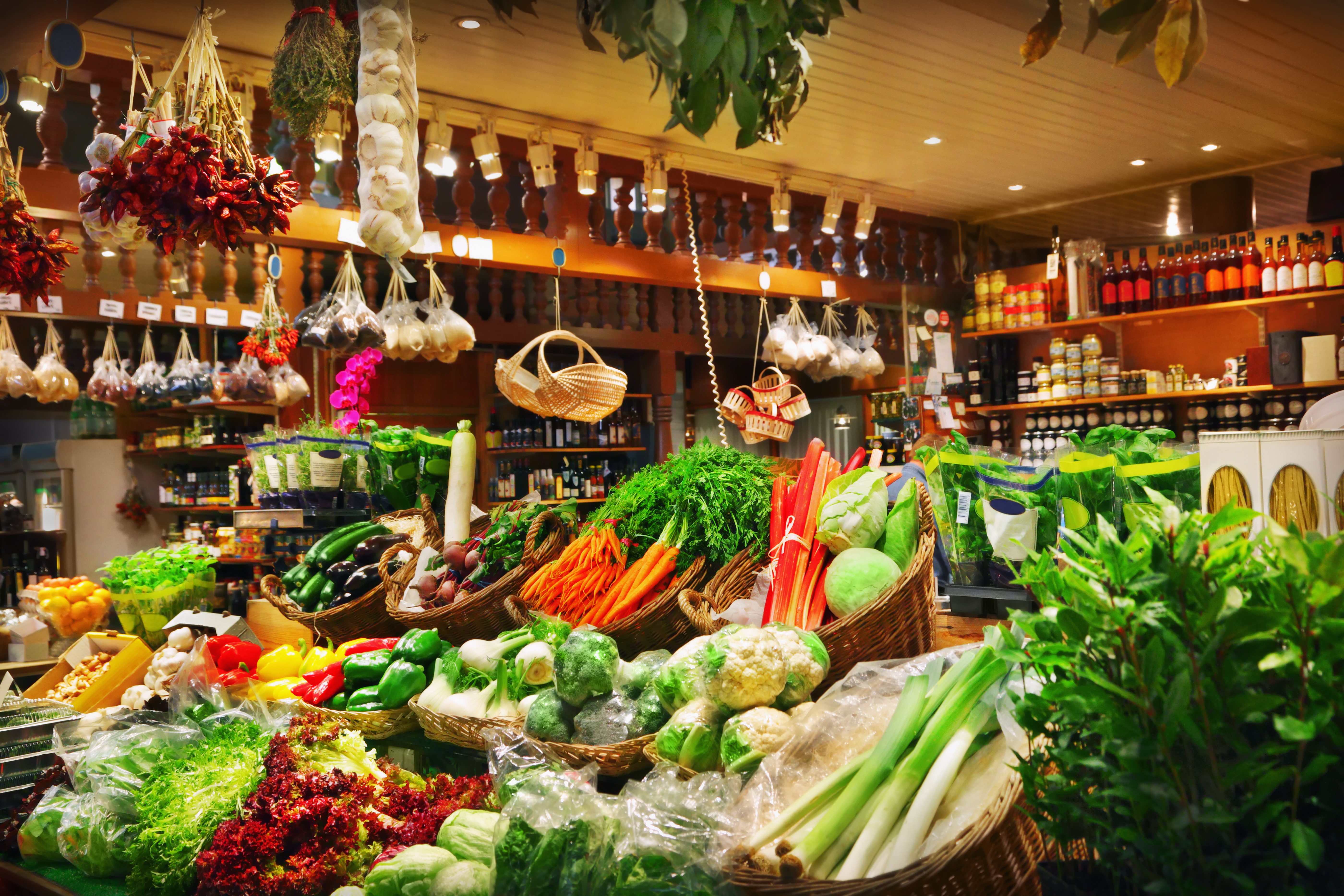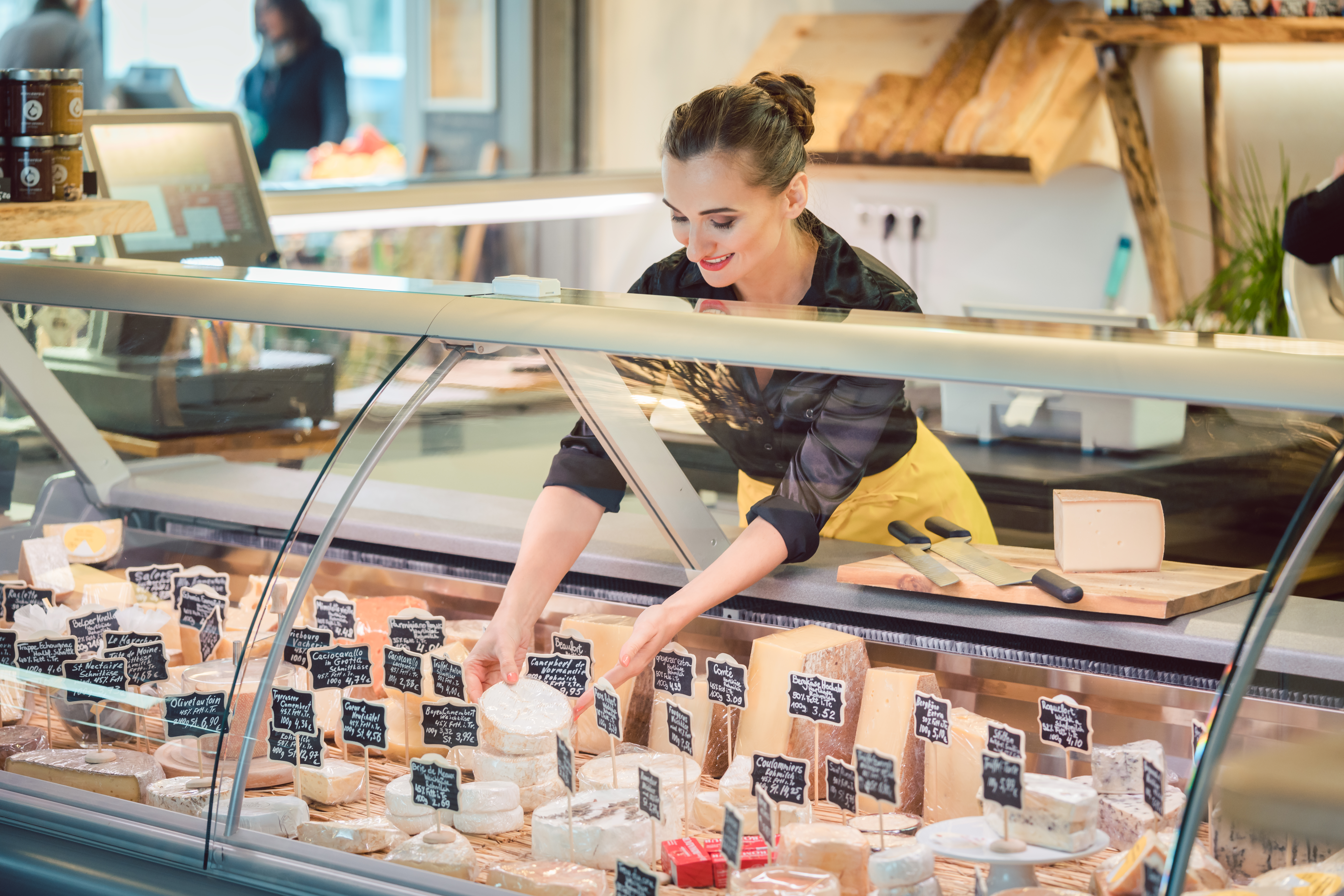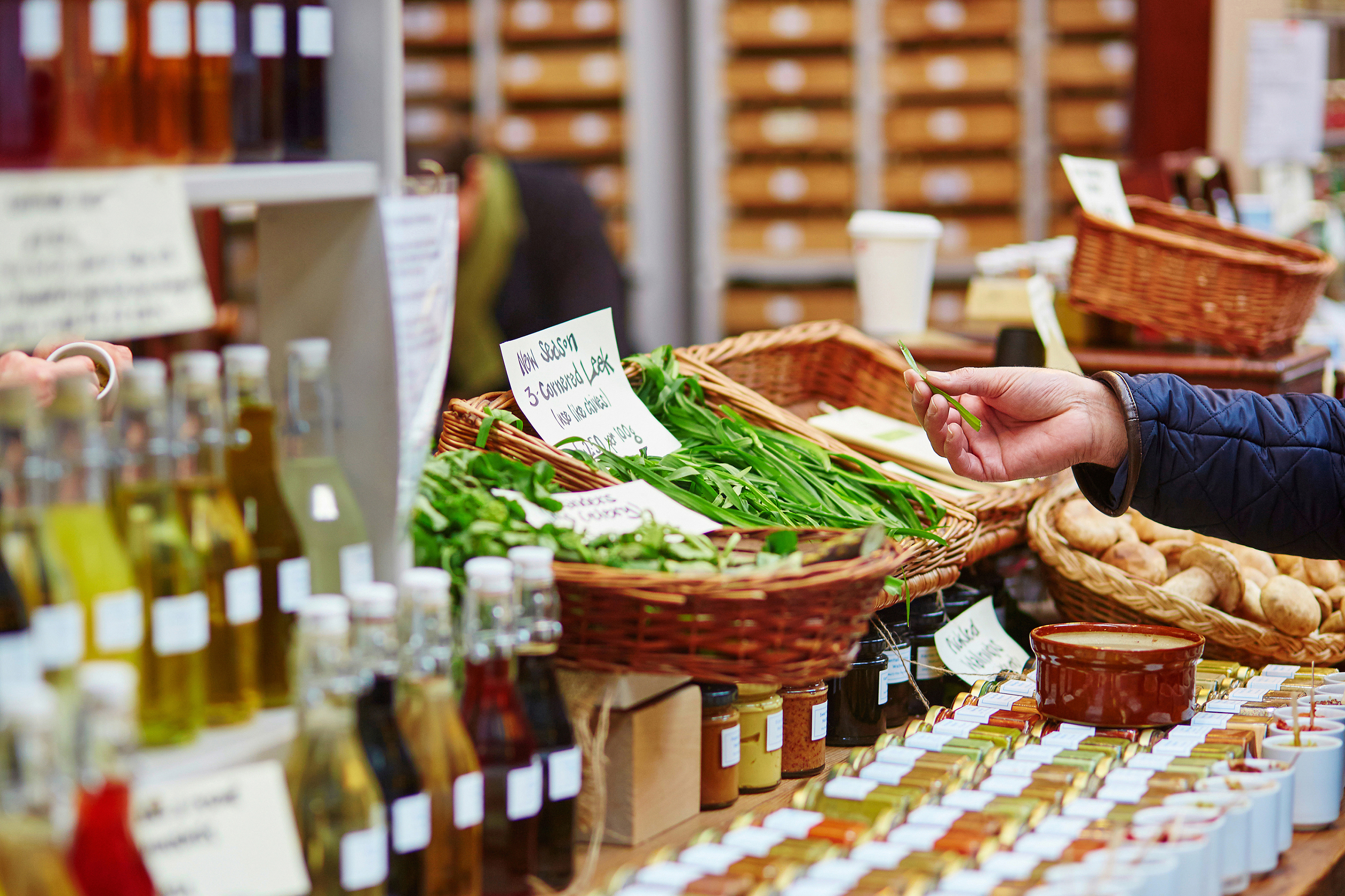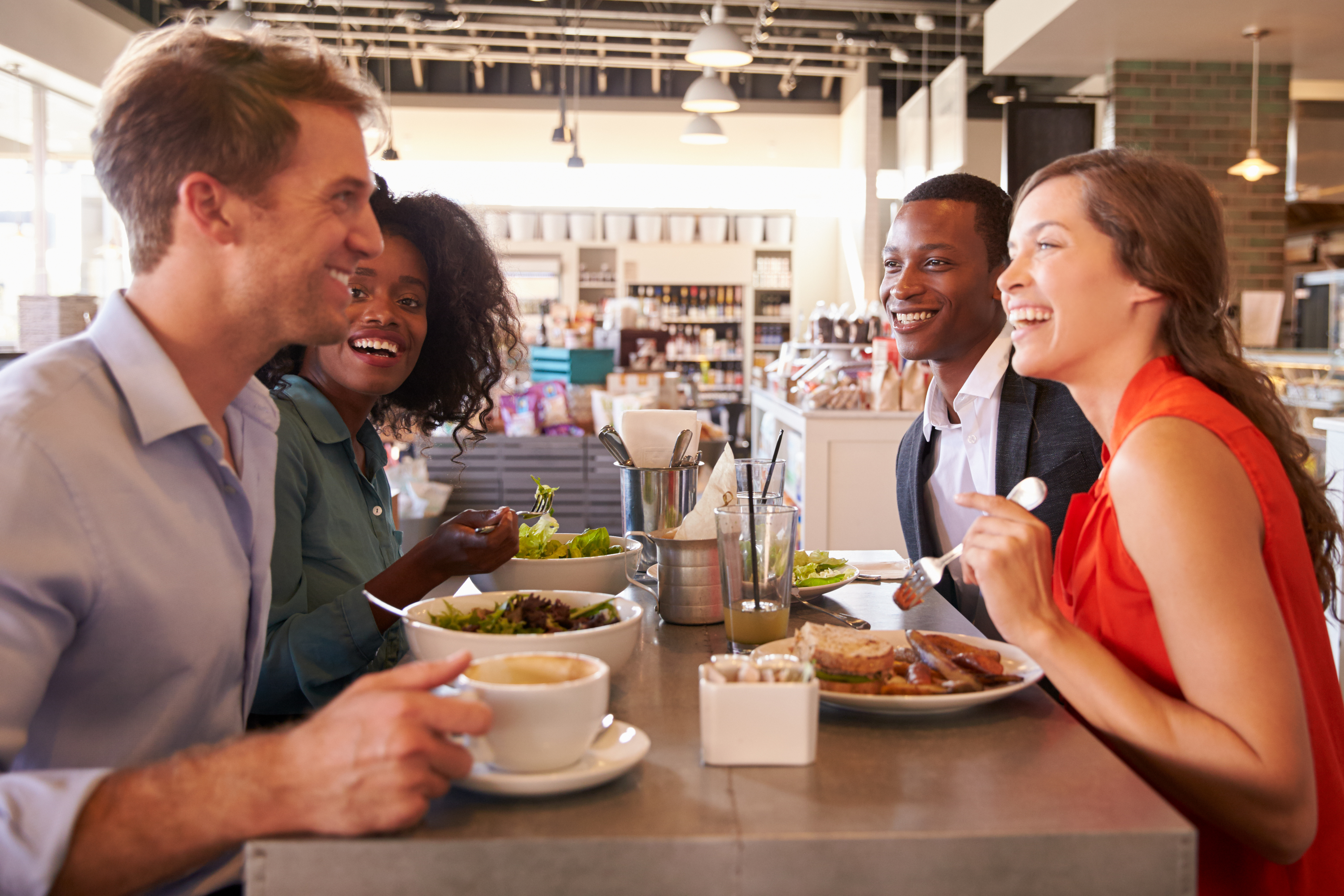Free digital copy
Get Speciality Food magazine delivered to your inbox FREE
Get your free copy
Artisan food is arguably something of an institution in Britain. While the past few years haven’t been without their challenges for any business, according to some figures there were still 1,493 delis in the UK - up 0.1% 2022 - while others suggest there are more than 1,500 farm shops. But like any business, the delis, farm shops and artisan retailers of today are not necessarily the same as those of yesteryear.
Changes in product sourcing, consumer trends, and the wider economic backdrop have seen an inevitable evolution in the way artisan retailers operate, notwithstanding huge obstacles like the Covid pandemic and its long-term impact on the sector. But where do all those changes leave artisan retail? Is there still a place for a traditional deli, cheesemonger, farm shop or food hall? Will they still exist in the future, albeit unrecognisable, or are their days numbered?
In the 30 years he has been working in the industry, Marcus Carter, founder of Artisan Food Club, has seen plenty of change. “Twenty or 30 years ago, there weren’t any wholesalers. Independent shops used to source products from all over the UK - they would find the best.” That would mean going out of their way to travel the country sourcing the best of the best, he says.
“There were no geographical restrictions, there was no local, there was just ‘who makes the best’, so shops had a very individual feel. Each independent shop had a very independent field because they sourced products from all over the country.” But the advent of wholesalers changed all that. “I think over the last 10 years, they sort of fell into ‘well, we’ll just order off the wholesaler’. Which is fine, except all your competitors are now ordering off the same wholesalers.”

The drive to ‘buy local’, while admirable, can also have the same effect, Carter observes. “Consumers started going into independent shops saying ‘we want to buy local’. So retailers, instead of finding the best hot sauce or the best chutneys or the best cheese, are now stocking local at the expense of having the best in category.”
That may help some local independent producers, he says, but for others, it makes it harder to get stocked in retailers that might not be on their doorstep.
“For the smaller independents that travel 40 miles up the road and visit six farm shops, they get told, ‘we can’t stock you because you’re not local’. And so it’s really hard for them to grow.”
The kicker is that the same small independent that might struggle to get stocked in an artisan retailer at one point, can later appear in a wholesaler or distributor’s brochure and end up in that same deli or farm shop, he points out.
“They’ll say no to a producer when they’re small and independent, but as soon as they become a certain size and join a wholesaler, it’s fine to stock that.” The upshot is that certain retailers - whether they be farm shops or delis - might not have quite the same unique range of products that they once did.
“A certain amount have become a chain - they all stock the same product. You can’t tell if you’re in a farm shop in Kent, Leeds, Cardiff or Truro. Before I walk into any farm shop, I could probably tell you at least 50% of the stock is going to be in there. So as a consumer, I’ve got no discovery. I’ve got no wonder.”
The drive for convenience has also seen a change in the world of artisan retail, says Carter, with less of the personal, ‘led’ shopping experience that makes delis stand out from more mainstream supermarkets.
“While you were in the shop, it would be a very much of a led shopping experience - you know, ‘come and see what we’ve got new, this is what we just got in’. And that’s disappeared out of the industry. It’s almost like a mini supermarket in some places - people are coming in, picking up what they know, then leaving.”
In his view, active ‘selling’ takes place less now than it once did in delis and other retailers, leading to a drop in customer loyalty. Without reassurance, time and attention from knowledgeable staff and owners, says Carter, customers have nothing to keep them coming back time and time again, opening them up to shopping around instead.
“It’s the reason butchers are bomb-proof - you don’t change your butcher because you’ve got a relationship. You know you’re going to get good quality, you know you’re going to be told how to cook it, you know you’re gonna have a good time. They can open up a butcher’s five doors down and you wouldn’t use that butcher. But if a deli or farm shop opened up in the area, most people would go and check it out.”

On top of that, the growth in additional elements offered by retailers - such as cafes and restaurants - means the shopping experience has been pushed down the pecking order when it comes to consumers’ priorities. “The farm shop cafe used to be the sort of thing you did at the end of your shopping as a little bit of a treat, but not the reason you went to the farm shop. But now people are going to delis and farm shops to eat and drink then shopping on their way out. Everyone seems to have yielded to convenience, without realising they’ve lost the key elements of what that shopping experience is.”
Carolyn Hopkins, owner of cheesemonger on wheels The Truckle Truck, doesn’t quite agree. In her view, ‘faddishness’ has gone, leaving people more loyal to brands and retailers in some ways. “You have not got that ‘it’s here today and gone tomorrow’ thing. But that does also make it difficult for new brands to break through,” she admits, echoing some of Carter’s thoughts about the established artisan brands that are often spotted in retailers. But for Hopkins, experience is still key to securing the longstanding presence of delis and farm shops on the artisan food scene. “It’s more of an experience, shopping with a small business. You get a much more personal interaction between the customer and shopkeeper. People are still looking for that.”
Given the economic climate, it’s unsurprising that experts in the sector admit basket spend is down when it comes to artisan food and drink. But despite this, customers numbers are up anecdotally, which means things are balancing out.
“If you look at basket spend at the moment it’s got smaller but more people are doing it,” says Hopkins. “So numbers are holding up.” Russell Allen, managing director at Midlands-based butchery and deli Aubrey Allen, agrees, saying while things have changed, they haven’t changed dramatically. “I think there’s been a shift, probably to more British stuff certainly, and people are looking for that local connection a bit more.
“In terms of numbers, I think we have perhaps more customers spending less.” It’s hard to know why this is, given the squeeze on people’s finances, but one might speculate that while some of the more pricey luxuries have had to go, treating yourself to nice food is still an affordable way to feel good.
“I think what we’re dealing with here is everyday luxury,” says Allen. “If you go to a deli and buy a pot of olives, a couple of nice cheeses and a loaf of bread, it’s going to cost you £25. It’s not going to cost you £80 or however much it would if you go out. I know a lot of people haven’t got £25 but there are some people who have and want to treat themselves which means they’re still getting something amazing, but not paying £100.
“I certainly think that delis are going to benefit from people entertaining more at home with the cost of living and looking for things to serve at home. I think that’s a trend.” Eating great food at home is something that has benefited Aubrey Allen in recent years thanks to the popularity of its artisan readymade foods, he says, while food gifting continues to be a popular choice - again a positive for artisan retailers - and something Allen doesn’t see changing anytime soon.

The consensus seems to be that the key elements that make independent retailers appealing will never disappear, but they still need to evolve to be able to compete. “Delicatessens play a really important, and still underappreciated, role in independent high streets across the country, and more so than ever as supermarkets have evolved,” says Gianfranco Perri, founder and CEO of Just Gourmet Foods, which specialises in the import and distributions of Italian artisan food in the UK.
“Independent food shops are vital for giving small, specialist brands opportunities to be seen and understood while being able to provide expertise and hands on advice to the consumer.” But it’s not quite as simple as relying on the longstanding love of artisan shops and delis, says Perri, with the onus on retailers to stay one step ahead to stay in the game. “All independents have had to become increasingly nimble and sophisticated in their operations, and now need to use a lot of their energy focusing on how to build a stable community who supports them in the face of changing economic forces,” he adds. That could be through offering more in-person events and learning opportunities, to maximising social media reach - working to simultaneously get customers through the door but also manage online offerings.
“Delis need to be open for longer and show more versatility and resilience than ever. This also means that brands need to work harder for them: shelf space is precious and valuable, and products really do need to be able to offer them meaningful sales and margin as well as a point of difference.”
The personal touch is another area where experts agree delis and artisan retailers excel. Like Hopkins, Allen thinks the shopping experience will always trump that of a supermarket or more mainstream chain. “People have got to trust you and not feel intimidated, that’s the main thing. You’ve got to be accessible, you’ve got to guide people.”
The guidance he refers to is reminiscent of the ‘led experience’ that Carter speaks of, and for Allen that is still very much present in his own deli. “When people come up and look a bit puzzled by the cheese counter, for example, you’ve kind of got to ‘go, well, what cheese do you normally like?’ ‘Well, I really like a nice strong cheddar’. ‘Okay. Do you like that? Or do you like something a bit different?’ ‘I’d like something a bit different.’ ‘Okay, then. What about trying this Irish organic cheese? It’s a little bit different, but ticks the boxes in your taste profile.’ You’ve got to develop that trust with the customers. I think it’s about taking people from the familiar to something slightly different rather than completely out of their comfort zone.”
Perri agrees: “I think the human element should not be underestimated in why people choose to shop in a deli. It is important for a deli to not feel intimidating or unwelcoming, and for the staff to be able to read the customers’ needs with very few cues. Some people will enter because they want to engage and get as much advice and interaction as possible, while others will not be confident in how to ask questions.
“Having people in the shop who can be sensitive to all the many ways to approach customers is what will make a committed customer base and, ultimately, ensure that everyone leaves buying more than they had planned!
“With the majority of people shopping in supermarkets or online for their core groceries these days, it is also important for independents to build a multi-sensory experience for the customer. Food shopping shouldn’t be a sterile process, and we can be positively inspired through all our senses. Good food retailing is an art and one to be indulged with visual impact, smell, taste and through the positive emotions that a customer will hopefully leave your shop with.”

With a fine balance between maintaining the status quo and continuing to offer everything people love in their delis and food retailers, and changing things up to ensure they can survive such turbulent times, what does the future hold for these businesses? For Hopkins, change is vital, and there’s a chance the days of big delis and shops that almost act as mini artisan supermarkets might be superseded by smaller, more economical operations. “I think delis are going to have to change,” she says. “I think the days of the physical big space are slightly numbered. To keep those shelves looking full is a huge expense.
“When you’re looking at thousands of pounds sitting on shelves all the time it’s a huge investment. I think smaller, possibly more specialist, businesses will thrive.” While delis previously had to diversify in order to survive, becoming all things to all people during the pandemic, Hopkins predicts things will be different in the future. “I think now it’s going to go the opposite way and will go really small and specialist, so individual cheesemongers, chocolatiers, bakers.”
But Allen isn’t convinced, saying the “economics don’t work out”, apart from in tourist areas where people are shopping for novelty value as much as necessity. “I’m not sure our market is sophisticated enough for that,” he adds. “I can’t see that someone who comes to buy cheese off us will go 10 minutes down the road, buy something else from someone else. I think these days you have to tick quite a lot of boxes for people. That’s my view.”
There may be agreement on some things, but it’s clear that the ‘suck it and see’ nature of artisan retail isn’t going anywhere, with no guarantee of success and no hidden formula in securing the future of your business.
But there’s one thing everyone can agree on, and it’s summed up by Perri. “There is very much a place for delis in 2023 – physically and philosophically – but is up to us all as consumers to support them and use their expertise to ensure that our local delis can thrive and continue their role of supporting small food brands to have a presence in an ever-challenging, and changing, food landscape.
“Without our independents there would be a rapid homogenisation of the food offer in this country, as well as the reduction in quality available for customers to buy. It is the grass roots knowledge and care which we need more of in these times and that people will hopefully recognise is too valuable to lose in the face of supermarket dominance. Good delis are keepers of traditional knowledge and food stories and their shelves are filled with opportunities to learn, educate and connect.”